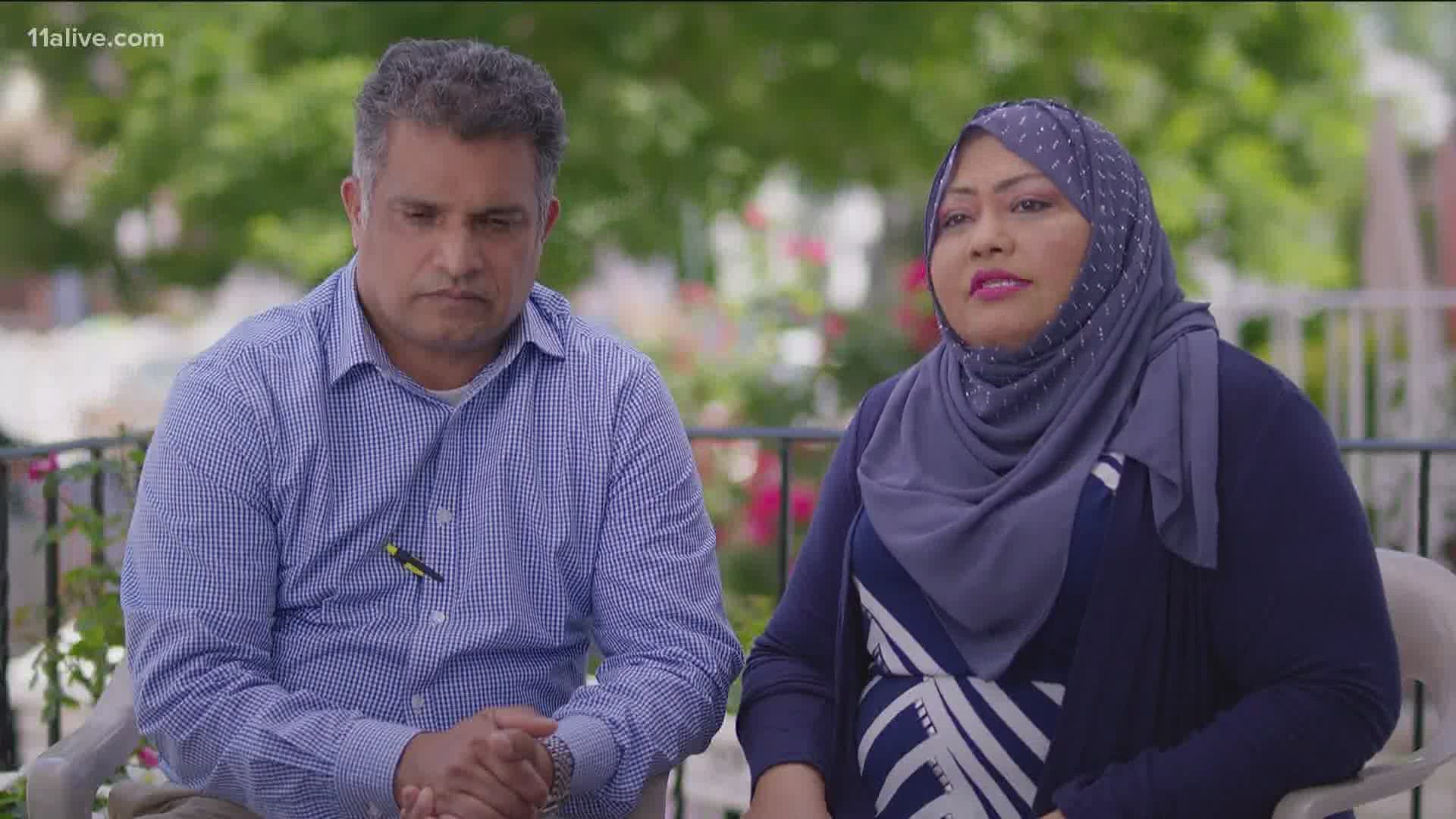ATLANTA — Hidden inside all of those daily numbers of coronavirus infections, hospitalizations, deaths, and recoveries are the stories of former COVID-19 patients who did not really recover.
They’re the patients who no longer have the virus itself, but are now suffering long-term and serious side-effects from it.
“It’s a long road ahead,” a former COVID patient, Selena Hafeez, told NBC News
Hafeez’s story is typical of the patients who recover from COVID-19, but weeks and months later, are still having to live with damage the virus did to their bodies, including damage to the lungs, or kidneys or other organs, or to the nervous system or brain.
Some of the patients are losing their memories and their balance.
“I’m still not myself,” Hafeez said nearly two months after getting out of the hospital. “I get tired very, very fast. To go upstairs, to come down the stairs, it’s hard.”
“They complain of mental fogginess, not being able to think clearly, at all,” said Dr. Avindra Nath. “The neurological symptoms are, certainly, the most prominent.”
Nath is the Clinical Director of the National Institute of Neurological Disorders and Stroke, at the National Institutes of Health in Bethesda, Maryland. He told 11Alive News on Thursday that patients dealing with “Post-COVID Syndrome” don’t all experience the same symptoms.
“They complain of palpitations, and every time they stand up their heart rate can go up," He explained."There are sleep abnormalities. Some people complain of low-grade fever and lymph node enlargement. Others complain of chest pain that continues, or aches and pains elsewhere in the body.
"Some have urinary symptoms. Others have GI (gastrointestinal) symptoms—constipation and the like," Nath said.
Last week, a former COVID patient, Shaun Evans, told 11Alive News how the infection damaged his kidneys, requiring him now to be on dialysis three times a week. He said doctors told him he will require a kidney transplant.
The virus, Evans said, is “really, really hard on your body… People don’t want to have to deal with this. It was bad. It was horrible." And now, even after he is free of the virus, itself, he said “it’s rough.”
Nath said Thursday that no one knows, yet, why the virus causes long-term or possibly permanent damage to some patients, or to how many patients.
“Apparently there are thousands of them that have come together on various social media platforms, and they have a huge variety of symptoms,” he said, adding that it’s not even clear, yet, if any of the former COVID patients who are suffering long-term damage might have had, for example, pre-existing conditions that could have weakened them while they were infected or after they were no longer infected.
“They were very, highly-functioning individuals, and all of a sudden, now they can’t perform in their jobs,” he said. “They’re really devastated. It’s quite possible that they may have underlying conditions they weren’t even aware of.”
Nath is starting to research the immune systems of COVID-19 patients who experience post-infection side effects, hoping that doctors will be able, at least, to minimize the symptoms, if not reverse the internal damage.
“And to try to understand what the underlying reasons are. Do the patients still have a viral that is present, do they still have an immune activation that may be driving these things? You have to be an optimist. I’m an optimist. My hope is that more people will continue to get better…. and we can make a difference in the lives of these patients…. But it may not be for everybody, unfortunately,” Nath said. “The best thing is not to get infected in the first place.”
Hafeez said that that hope of getting better is sustaining her, now.
“COVID is not something to play with. It’s like a monster living in your body," Hafeez said.
Nath is inviting former COVID-19 patients who are now dealing with “Post-COVID Syndrome” to email him, natha@mail.nih.gov.
“I want to talk directly to the patients who are suffering from this post-COVID syndrome. I want to reassure them that we are here to help them, and they are welcome to contact me, and we’ll try to do our best to either find them help or do something ourselves…. They should not despair. That’s the most important thing.”
OTHER HEADLINES

